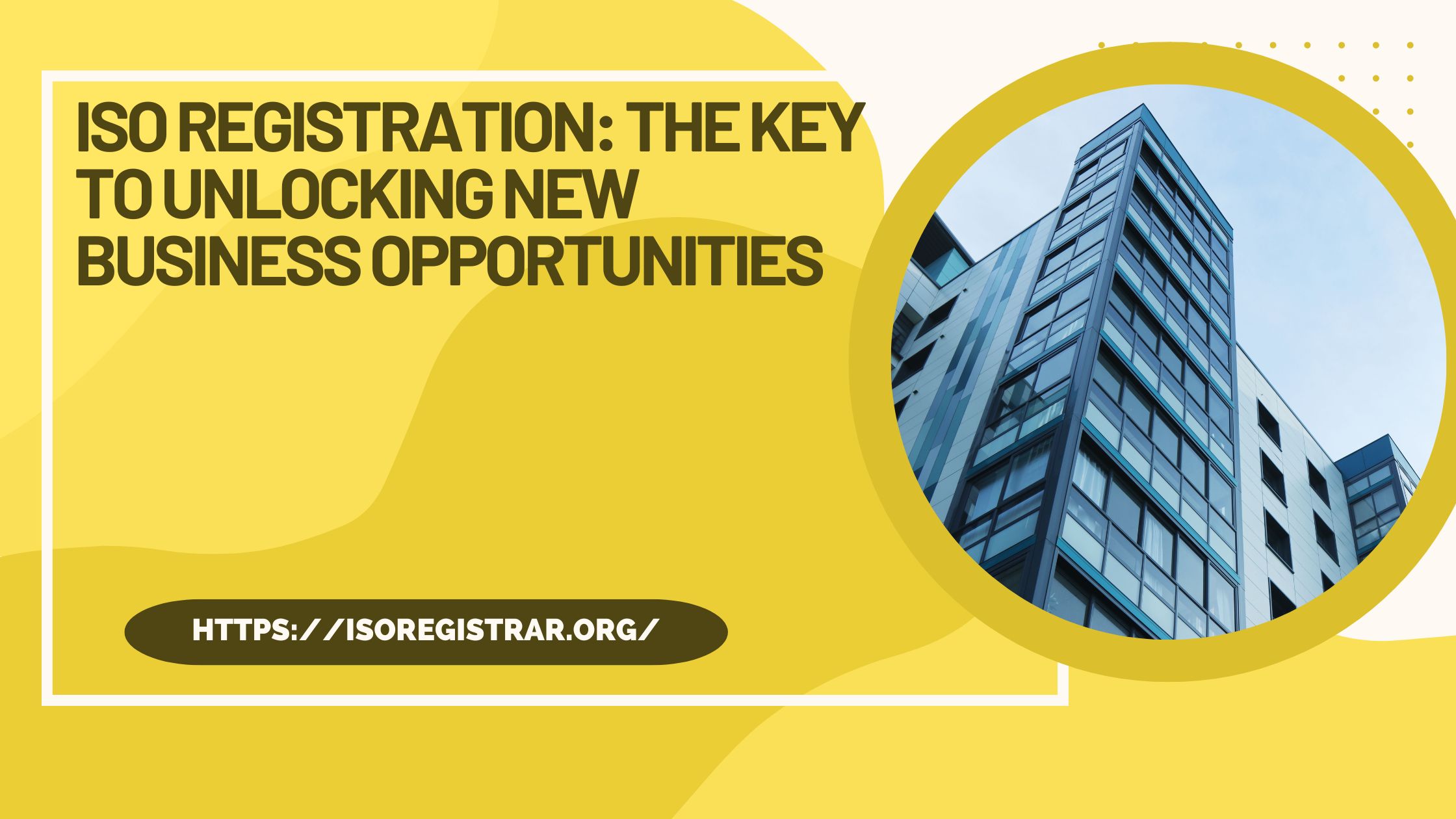Introduction
In an increasingly competitive global marketplace, credibility, consistency, and quality are not just advantages—they’re necessities. Businesses are constantly searching for ways to distinguish themselves, streamline their processes, and earn the trust of customers and partners alike. One of the most effective ways to achieve all three is by obtaining ISO Registration. But what exactly is ISO registration, and why is it considered a game-changer for business growth and opportunities? Let’s break it down.
What is ISO Registration?
ISO (International Organization for Standardization) is an independent, non-governmental international organization that develops standards to ensure the quality, safety, and efficiency of products, services, and systems. ISO standards are recognized globally and serve as a benchmark for businesses aiming to meet customer and regulatory requirements. ISO registration—or ISO certification—means that a company’s systems and processes have been audited and meet the standards set forth by the ISO. Some of the most popular standards include:
- ISO 9001 – Quality Management Systems
- ISO 14001 – Environmental Management Systems
- ISO 27001 – Information Security Management Systems
- ISO 45001 – Occupational Health and Safety
Each standard targets a specific area of operations but collectively contributes to a business’s overall reliability and professionalism.
Why ISO Registration Matters
1. Builds Credibility and Trust
Trust is a critical factor in customer decision-making. ISO certification serves as an assurance that your business follows internationally recognized best practices. Whether you’re a manufacturer, service provider, or tech company, ISO registration immediately elevates your brand in the eyes of clients, stakeholders, and partners. It’s not just about having a certificate to hang on the wall—it’s a symbol of commitment to quality, safety, and continuous improvement.
2. Opens Doors to New Markets
Many companies, especially multinational corporations and government bodies, require ISO certification as a precondition for doing business. Without it, you may be automatically disqualified from bidding on contracts or entering certain supply chains. ISO certification removes these barriers and positions your company as a viable contender in new markets, domestic and international alike. It levels the playing field, allowing even small businesses to compete with larger, established players.
3. Enhances Operational Efficiency
One of the often-overlooked benefits of ISO registration is the internal improvement it brings. The process of becoming ISO certified forces companies to document procedures, assess risks, and establish clear workflows. This leads to:
- Better process management
- Reduced errors and waste
- Faster problem resolution
- Clearer employee responsibilities
Over time, these improvements contribute to lower operational costs and higher productivity.
4. Improves Customer Satisfaction
At the heart of ISO standards is a focus on the customer. ISO 9001, for instance, emphasizes continual improvement and customer satisfaction. By aligning your processes to meet ISO standards, you inevitably improve your ability to meet or exceed customer expectations. Happy customers lead to repeat business, positive reviews, and powerful word-of-mouth referrals—all key ingredients for growth.
5. Ensures Compliance and Risk Management
In today’s regulatory landscape, compliance is non-negotiable. ISO standards help businesses stay aligned with legal and regulatory requirements, reducing the risk of fines, penalties, or shutdowns. Moreover, standards like ISO 27001 help in managing data security risks, which is crucial in an era of frequent cyberattacks and growing privacy concerns.
6. Boosts Employee Engagement and Clarity
ISO certification fosters a culture of accountability and involvement. Employees better understand their roles and how they contribute to the company’s success. Training and documentation requirements also lead to a more competent and confident workforce. Engaged employees are more productive, innovative, and less likely to leave—making ISO registration a win-win for the business and its staff.
How to Get ISO Registered
Getting ISO certified is a structured process that typically involves the following steps:
1. Identify the Appropriate ISO Standard
Begin by selecting the ISO standard that best matches your industry requirements and business goals—for example, ISO 9001 for quality management or ISO 14001 for environmental management.
2. Access the Certification Platform
Visit the official ISO certification portal or an authorized service provider’s website that offers ISO registration services.
3. Complete the Online Application
Fill in the required details about your business, such as company name, size, location, and the ISO standard you are applying for. Ensure all information is accurate and up-to-date.
4. Review and Submit Your Form
Carefully check the information you’ve entered for any errors or omissions, then proceed to apply.
5. Make the Payment
Pay the applicable registration fee using your preferred payment method. This fee may vary depending on the ISO standard and the service provider.
6. Verification by Consultant
After submission, a certification consultant will review your application and confirm whether the chosen ISO standard is appropriate for your business.
7. Get Your Certificate
Once the verification is successful and all formalities are complete, your ISO certificate will be issued and sent to your registered email address.
While the process requires time and resources, the return on investment in terms of opportunities and efficiency is well worth it.
Note: You can also apply for the ISO 9001 Certificate from our website
Conclusion
ISO registration is more than just a badge of honor. It’s a strategic move that can unlock a host of business opportunities—from entering new markets to improving operations and delighting customers. In a world where reputation, reliability, and compliance matter more than ever, ISO certification is no longer optional—it’s essential. Whether you’re a startup looking to grow or an established business aiming to expand globally, ISO certification can be your gateway to greater success. The sooner you start, the sooner you’ll reap the rewards.


